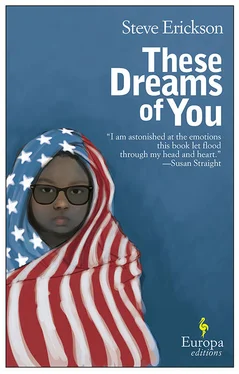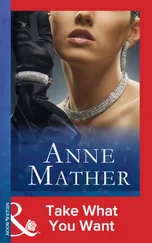The African woman standing across the road from the pub at Leicester Square wears a mix of traditional and western clothes, jeans with a shawl for her head. “Sheba?” Zan says to the girl, and though she doesn’t respond, the woman looks at him as though she heard him, breaks from the girl’s stare and picks up the shopping bag at her feet and walks on. Sheba doesn’t move or speak but follows with her eyes the woman’s retreat into the city bustle.
In the pub, one of Zan’s two remaining credit cards is declined. Later that night, with the little girl snoring next to him in the double bed while Parker sleeps in a perpendicular single bed, the father goes online to check the limit on the card and finds the bank has lowered it to below what he already owes. This leaves one card left with credit. Zan monitors as well, each time with that familiar knot in his stomach that he brought with him eight thousand miles across the Atlantic, the website that posts foreclosure dates.
Zan can’t risk lying in the dark thinking, because hopelessness will overcome him. To distract himself, he composes in his mind playlists for the radio show, as if Sheba could transmit them to the canyon an ocean and a continent away. After mentally compiling countless unrelieved hours of Joy Division, Nine Inch Nails, Rammstein, Celtic Frost, Cradle of Filth, Carnage, Dismember, Revolting Cocks, Dark Tranquility, Morbid Angel and Kevorkian Death Cycle, Zan dreams of rats streaming out of every crevice of the house in death-metal mode the moment the family locked the door behind them on the way to the airport. A mosh pit of revelrous rats stampedes across his imagination.
In Addis Ababa, Viv sits in the car outside the orphanage walls lost in thought, discouraged and wondering what to do next, when the young guard from the gate taps on the window. As he exchanges words with the driver, the guard peers back over his shoulder toward the walls and orphanage beyond; he motions to the driver with his hands, indicating the road ahead.
The driver turns to Viv in the backseat and says, “I can take you to the girl’s family.” Viv looks at the guard and says softly, “Thank you,” pressing five hundred birr toward him through the window that, after a longing glance, he refuses. She gestures, insisting, but he shakes his head emphatically. The driver explains, “He wants to say he loves the little girl,” and Viv nods, raising her hand to the guard in a final goodbye.
The house where Sheba spent most of the first two years of her life is two rooms, the larger one a square nine meters, the smaller one with a single cracked window, one large bed, two chairs, a tiny table and, most prominently among the belongings, an injera maker.
Sheba’s father is in his thirties, maybe nearing forty in that way that’s impossible to determine among Ethiopians, more than six feet tall and limping slightly from his time as a paratrooper in some Somali War or another. Solemn tho forthcoming Viv describes him in the last email that Zan will receive from her, seemed at first a little awkward & I think in this male-oriented culture he feels inadequate he couldnt care for his daughter. His mother (Sh’s grandmother) had 10 children, 2 died, her husband died & she had difficult time raising & feeding them , and though Sheba’s family weep to see her again, Viv can tell they’re wary. There have been questions from the police about the money, and the family doesn’t seem especially surprised by Viv’s return. When she raises the subject of Sheba’s mother, trying to explain that now she’s less concerned about contacting her than helping her if she’s in trouble, a heated exchange takes place between Sheba’s aunt and grandmother, during which Sheba’s father is even more circumspect than usual.
It’s obvious to Viv that the aunt and grandmother are upset, maybe even angry. Later, as translated to Viv by the driver, the father describes Sheba’s mother as beautiful and “fat”—Viv realizes after some back and forth that what the father and driver mean is voluptuous. The father and mother were together less than a year, maybe more briefly than that, when she became pregnant, and as Viv asks more questions it becomes less clear that any of them, including perhaps the father, ever met the mother’s family.
The grandmother declares, through the translation by Sheba’s aunt, You are her mother now, we chose you. You will make the best decision. Only at the last moment does she impart to Viv something new, which on the tape of Viv’s recorder is almost impossible to hear over the rain: instructions where the driver should take her, with no indication who or what will be found there.
Zan barely can bring himself to return J. Willkie Brown’s phone calls or overcome what petty satisfaction lies in making the other man call first. When they meet at a bookstore near Montague and Great Russell Street, sipping cold coffee drinks — the new London seems to have more coffee than tea now — on the afternoon of the family’s fifth day in the city, Zan spends most of the first few minutes fretting over whether the young woman behind the counter neglected to decaffeinate Sheba’s mocha. Maybe decaffeinated coffee, he worries, is one of those notions that Europeans find oxymoronic to the point of senseless.
It seems to Zan that Brown visibly labors not to go out of his skull at the children’s very presence. Always thin with a loping gait, he’s lost even more weight since Zan last saw him years ago, in a way that appears distinctly unhealthy; his once long hair is now cut short and he’s as disheveled as writers are expected to be, or as disheveled as Brown expects that writers are expected to be, anyway. Appraising the kids with an affected patience, he has a voice and manner of speaking that’s less bombastic than slightly and quietly superior.
Sheba gives not the slightest evidence of decaffeination. “I trust this is all right, then,” Brown finally says uncomfortably, looking at the place around them; the two men shift where they sit. “Fine,” says Zan. “I was going to suggest a pub we were at yesterday called the Ad Lib — or it used to be called that. I don’t know what it is now.”
Both of them perpetually uneasy, Brown nods, musing, “Swinging London. Sixties landmark,” he remarks to Parker sitting in the next chair. “The upstairs part, actually.”
Parker tries to be polite about it. “My dad said.”
“Dawn of Man as far as they’re concerned,” says Zan.
“How is Viv?” asks Brown. Good for you, thinks Zan: Let’s get to the elephant in the room. “She’s fine,” he answers. “Parker, you think you can keep an eye on her?” Sheba is starting to gyrate; soon she’ll be toppling glass cases of rare Eighteenth Century manuscripts.
“Why me?” Parker protests.
“Still at it with the photography, the art. . ” says Brown.
“Sorry?” says Zan.
“Viv. The art. . ”
“Yes.”
“Heard about the great scandal, of course. Arsehole.”
Zan says, “What?” For a moment he thinks J. Willkie Brown is slipping insults into the conversation, like the bank officials on the telephone.
“He’s an arsehole,” says Brown, “everyone knows he’s a plagiarist. You should sue him.”
“Oh,” Zan answers, “yes. We would if he could afford to.”
“Surely there’s a solicitor who would take it on, contingent on the outcome? Of course it’s a hard thing to prove, plagiarism. Nothing’s original, I suppose.”
Читать дальше











